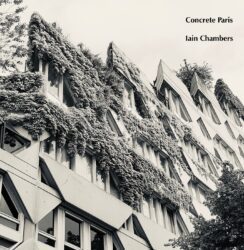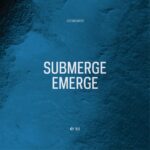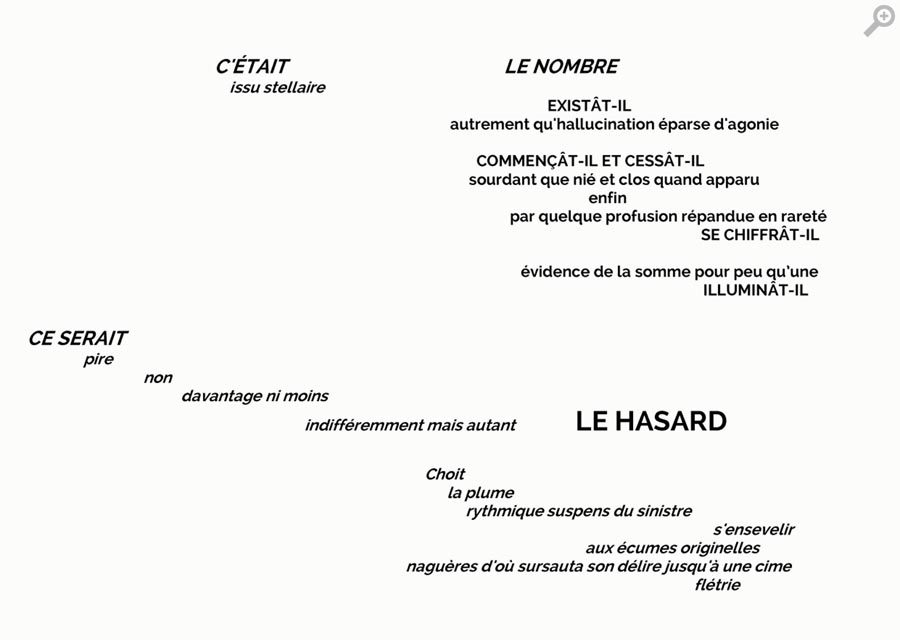JOS SMOLDERS – SUBMERGE EMERGE
You can trust Dutch electroacoustic composer and sound artist (and mastering engineer) Jos Smolders to come up with amazing sounds. After all, he has the experience of experimenting for more than 35 years – learning to work with “a combination of instinct, talent, skill, and patience”.
Submerge-Emerge, released on Crónica as a 2-CD set and digital download, presents a fascinating otherworldly soundtrack based on Stéphane Mallarmé’s poem “Un Coup De Des Jamais N’Abolira Le Hasard” from 1897 (which translates as ‘a roll of the dice will never abolish chance.’). When he read the poem in his teenage years he was fascinated – though it was more because of the way it was printed than by the words themselves (check the link above for a preview and translation). Forty years later, around 2016, he explored the poem again and this time it inspired him to create this project.
“Reading the poem, one gets easily lost. These are no firm and consistent sentences. It’s not a sequence of sentences telling a story, and there is no clearly definable plot.”
Some of this also translates to the music. It is presented in sets of ‘plates’ (the poem’s printed pages), divided by an “interlude” after every two of them. Fragments of the poem are recited by Valerie Vivancos in a beautiful voice that is somewhat alienated by electronic processing.
Most of the sound is related to water – combining field recordings of “harbours, beaches, ships’ motors, storms, waves breaking on the rocks, the quiet lapping of waves on a small French beach” with the electronics of Smolders’ modular system. But this does not imply that the result sounds like anything out of this natural world.
“The central theme of the poem, at least what I got out of it, is that of a creator/artist (the captain) sailing the endless ocean on his ship. The ocean represents the creative state of mind. Sometimes there are prevailing winds. On other occasions, huge gales toss the ship around with towering waves moving everyone off course, if not sinking the lot. And then there are the doldrums, the parts where, yes, the sea is calm, but there is no wind, and you’re not getting anywhere. Looking back at my own experience as an artist, I have seen all these weather conditions as well.”
It took a long time before Smolders understood the poem’s intention, and he still doubts if he fully understands it. Likewise, it took him five years to complete the poem’s translation into music. “Five years to record, compile, rethink, leave it alone, get back, reform, cut, add, alter, and finish this beast that at times itself became an ocean of sound and form. It is time to cut the ropes to this vessel and sail on. I hope it inspires, because “toute pensée émet un coup de dés” !” (every thought rolls the dice).
And now it’s the listener’s turn to dive in deep, to submerge himself in this impressive set of soundscapes, and to emerge refreshed – and perhaps also puzzled.
IAIN CHAMBERS – CONCRETE PARIS
There are some interesting similarities between Smolders’ project mentioned above and Concrete Paris by Iain Chambers. Both extensively use field recordings as the basic material to create their musical compositions and use them in such ways that it enables them (and the listener) to explore previously uncharted territory. Smolders studied architecture, and so must be familiar with the ‘brutalist’ Paris architecture: the daring social housing projects that were built in the banlieues rouges (‘communist suburbs’) in the 60s and 70s.
Iain Chambers decided to describe these projects and spaces through music and sound design, using actual recordings from the buildings.
Originally, Concrete Paris was commissioned by BBC Radio3, featuring some of the architects and people who live there. (This radiophonic documentary was broadcast on February 28 in the Between The Ears series, but is currently still available to download).
But for this speechless release, Chambers paired the original recordings with recordings from beyond Paris’s Péripherique (the dual carriageway that contains the historic city).
Concrete Paris is a 28-minute electroacoustic/musique concrête composition presenting an unusual ‘view’ on Paris – not focusing this time on the classic romantic city as everyone knows it, but demonstrating the sheer beauty of its concrete.





